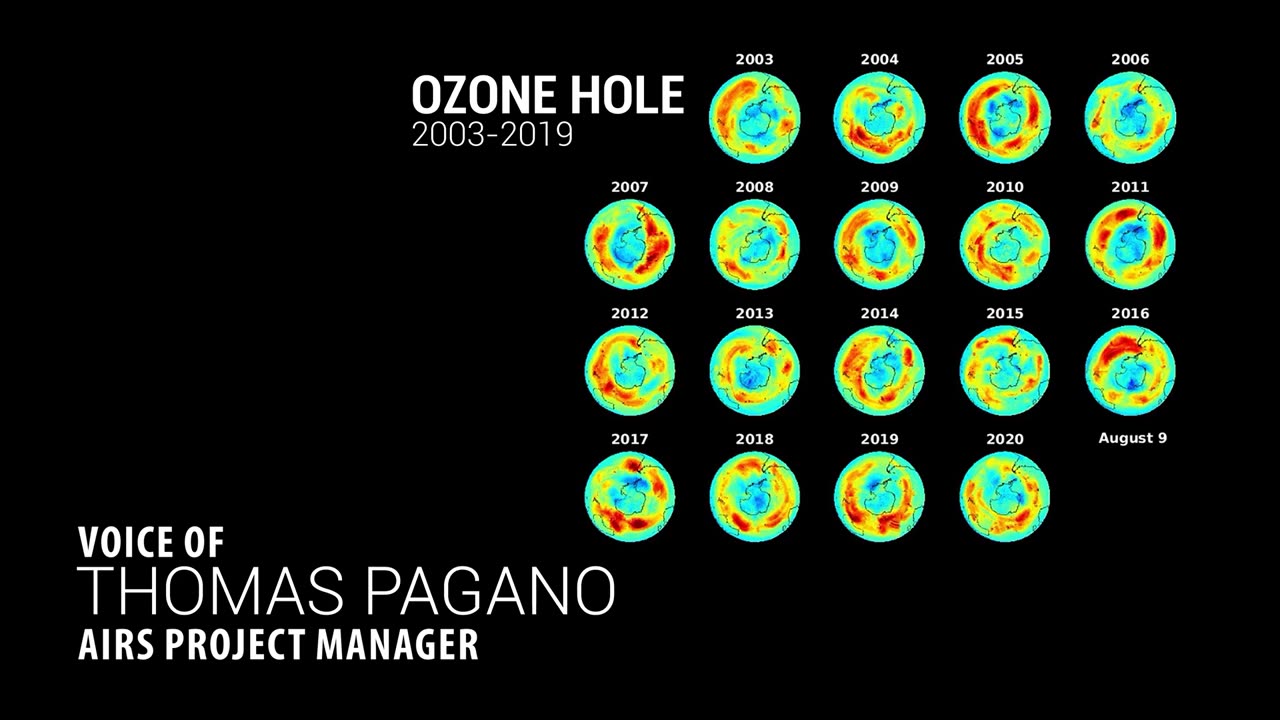Premium Only Content

AIRS- NASA Advances Our Understanding of Earth’s Climate
The Atmospheric Infrared Sounder (AIRS) is a highly advanced instrument developed by NASA that plays a crucial role in advancing our understanding of Earth's climate. It is aboard the Aqua satellite, which was launched on May 4, 2002, as part of NASA's Earth Observing System (EOS). AIRS is designed to measure the Earth's atmospheric temperature, humidity, cloud properties, and greenhouse gas concentrations on a global scale.
Here are some key contributions of AIRS to our understanding of Earth's climate:
Global Climate Monitoring: AIRS provides highly accurate and detailed measurements of temperature and humidity throughout the atmosphere. This data is essential for tracking climate change, analyzing trends, and understanding the dynamics of the Earth's climate system.
Greenhouse Gas Observations: AIRS is capable of measuring the concentration of greenhouse gases such as carbon dioxide (CO2) and methane (CH4) in the atmosphere. This information is critical for studying the sources, sinks, and distribution of these gases, which play a significant role in the Earth's energy balance and climate.
Weather Forecasting and Research: The detailed atmospheric profiles obtained from AIRS data help improve weather forecasting models by providing accurate initial conditions for numerical simulations. This contributes to more reliable short-term weather predictions and the study of atmospheric processes.
Understanding Climate Feedbacks: AIRS data assists researchers in studying climate feedback mechanisms, where changes in one aspect of the climate system can influence other components. For example, the interaction between water vapor, clouds, and temperature is critical for understanding climate sensitivity.
Validation of Climate Models: AIRS data is used to validate and improve climate models by comparing model predictions with actual observed data. This process helps scientists refine and enhance the accuracy of climate simulations.
Detection of Extreme Events: AIRS data can help identify and monitor extreme weather events, such as heatwaves, droughts, and heavy rainfall, which have important implications for climate change impacts and adaptation strategies.
Long-Term Climate Studies: Over its years of operation, AIRS has amassed a significant dataset that allows scientists to study long-term climate trends, variability, and changes in the atmosphere. This historical perspective is essential for understanding how climate is evolving over time.
Overall, the data collected by AIRS contributes significantly to the advancement of climate science, enabling researchers to better comprehend the complex interactions within Earth's atmosphere and make informed decisions about climate policy and mitigation strategies.
-
 LIVE
LIVE
Caleb Hammer
1 hour agoFinancial Audit's First Furry
62 watching -
 LIVE
LIVE
The Big Mig™
1 hour agoOperation Arctic Frost FAFO!
5,072 watching -
 DVR
DVR
VINCE
2 hours agoThe Dems Are Desperate So They're Breaking The Law | Episode 154 - 10/24/25
54.5K62 -
 LIVE
LIVE
Badlands Media
8 hours agoBadlands Daily: October 24, 2025
3,606 watching -
 LIVE
LIVE
Major League Fishing
8 days agoLIVE! - Fishing Clash Team Series: Patriot Cup - Day 3
133 watching -
 LIVE
LIVE
Film Threat
23 hours agoFRANKENSTEIN + SHELBY OAKS + CHAINSAW MAN + MORE REVIEWS | Film Threat Livecast
34 watching -
 LIVE
LIVE
Side Scrollers Podcast
22 hours ago🔴FIRST EVER RUMBLE SUB-A-THON🔴DAY 4🔴BLABS VS STREET FIGHTER!
1,071 watching -
 1:07:07
1:07:07
Graham Allen
3 hours agoLibs Are FUMING Over Trumps Ballroom! + Trump ENDS ALL Trade Talk With Canada And NBA Scandal!!
81.6K56 -
 27:30
27:30
Simply Bitcoin
1 day ago $3.15 earnedAndré Loja: The Man Building a Sovereign Bitcoin Island
9.31K4 -
 30:50
30:50
Matt Kohrs
23 hours agoPlan B w/ Rahim Taghizadegan || The Matt Kohrs Show
15.6K